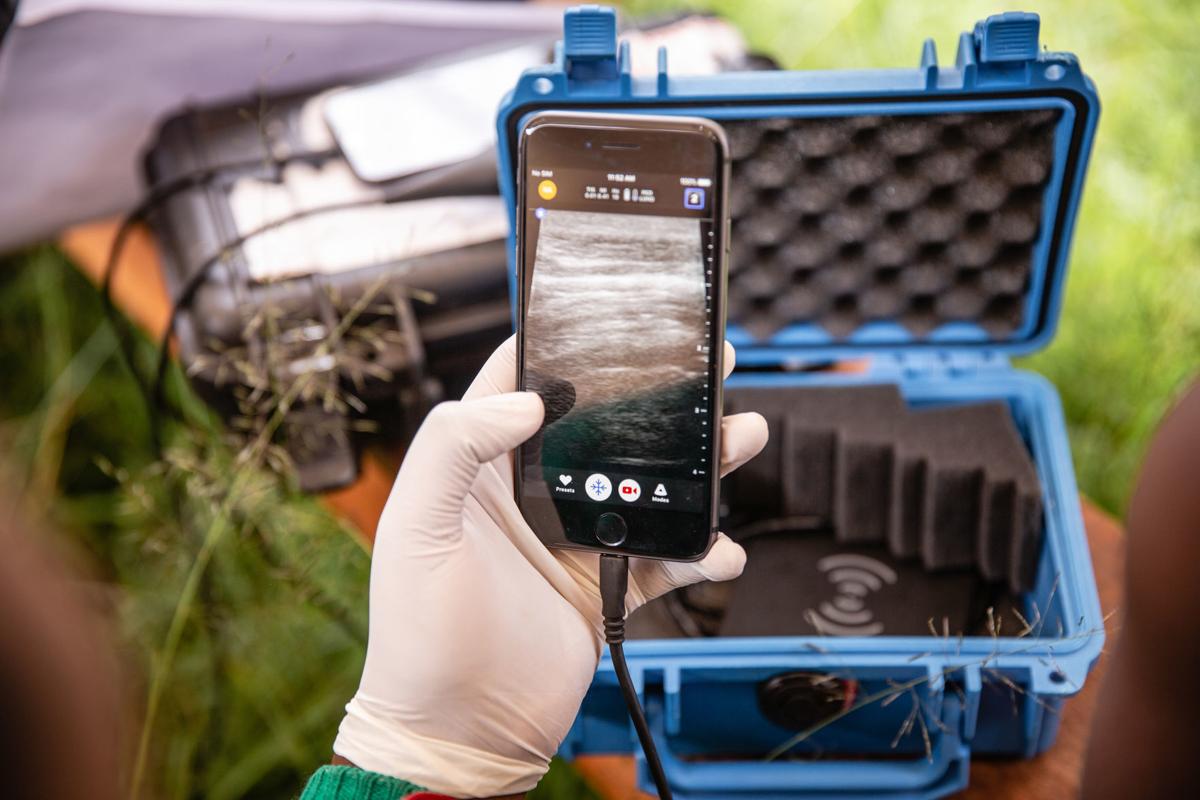Improving Rural Health in Impoverished Countries
"That [to aid medical diagnoses in rural Africa, Asia and Latin America] was my real motivation for making it [handheld ultrasound scanner]."
"Two-thirds of the world's population gets no imaging at all. When you put something on a chip, the price goes down and you democratize it."
"My team is engineers and computer scientists. We'd love to be able to save lives the way doctors do, but we can't -- so every tweet from Africa about the Butterfly iQ is an incredible adrenalin shot for us."
Jonathan Rothberg, founder, Butterfly Network, Connecticut
 |
| The New York Times |
That innovative ultrasound scanner is doing exactly what the founder of the Butterfly Network hoped it would succeed in producing; vastly improved health care for hundreds of thousands of people living in remote areas of Africa, Asia and Latin America, by bringing to them in their isolated towns and villages medical teams and their equipment, among that equipment the scanner that plugs into an iPhone which can send scans to expert health professionals for verification of local doctors' diagnoses on the basis of what the scanner reveals.
Dr. William A. Cherniak works in Bushoro, Uganda, with a local health care contact, Rodgers Ssekawoko Muhumuza, a clinical officer in Uganda, to help in his training and educate in the use of the new device. Dr. Muhumuza interprets what he sees on the scan of a patient's chest and Dr. Cherniak prods him for his recommendation. When the Ugandan doctor prescribes antibiotic and orders blood tests to rule out tuberculosis, malaria and HIV, arranging for the patient to travel to a local clinic for an X-ray and observation, his mentor nods in agreement.
Dr. Cherniak's role in this is twofold; apart from mentoring his student, he uploads the scan to send to an ultrasound specialist in Toronto to validate the diagnosis, which could be early-stage pneumonia. An emergency medicine specialist from Canada, he is the founder of a Canadian charity, Bridge to Health, which works closely with Kihefo, a western Uganda-based medical charity. The Bill and Melinda Gates Foundation is involved as well as other family charitable trusts, by backing Butterfly Network.
Without that new hand-held ultrasound scanner that may shortly revolutionize front-line global medicine, the Butterfly iQ -- the work of the medical teams would not progress as well as it is proving, enabling swifter diagnoses and in the process enabling medical personnel to resolve health problems of people who would not otherwise receive the kind of treatment that people in developed countries take for granted.
 |
| These phones become ultrasound scanners The New York Times |
Around the size of an electric shaver, the Butterfly iQ is battery-powered, containing microchips rather than piezoelectric crystals. If dropped, as a result, it won't break quite as readily. Butterfly Network aims its innovative new product at the medical community for whom the price of the device, at $2,000, is affordable. It fits into a coat pocket and is thus as portable as the old tried-and-true stethoscope.
In rural areas of Africa, Asia and Latin America, access to X-ray machines may involve travelling long distances while CT and MRI scanners may be available only in capital cities. Butterfly Network founder Rothberg has donated scanners to medical charities working in thirteen low-income countries, seven in Africa. Several of the devices were sent to Bridge to Health, the scanners used primarily to check for pneumonia, a major killer of children in poor countries, frequently misdiagnosed.
The devices, Dr. Cherniak's team has discovered, have multiple other uses, as well. Kihefo operates a travelling medical system where at dawn a truck loaded with tents drives into villages, erects the tents and uses improvised examination tables borrowed from schools and churches, such as pews and desks, padding them with yoga mats for comfort, and screening them with light-weight purple curtains.
 |
| The New York Times |
Soon afterward, when all is in readiness, the Canadian-Ugandan brigade arrives -- vans conveying doctors, nurses, dentists, chiropractors, gynecologists, ophthalmologists and pharmacists. Local clinical officers and medical students, all carrying bags of equipment accompany them. The dental team fills cavities, the ophthalmologists check eyes, the medical team sees patients from newborns to nonagenarians.
Bridge to Health focuses on teaching Kihefo's clinical officers, exposed to four years of medical training, but are not qualified as physicians, to diagnose pneumonia. Dr. Cherniak and his pupil, clinician Anguyo, agree that success will be realized when the quality of local diagnoses with the use of the Butterfly iQ agree at least 80 percent of the time with those of the ultrasound specialists in Toronto.
Labels: Africa, Asia, Canadian Medical Volunteers, Innovative Medical Devices, Medical Charities, South America

0 Comments:
Post a Comment
<< Home